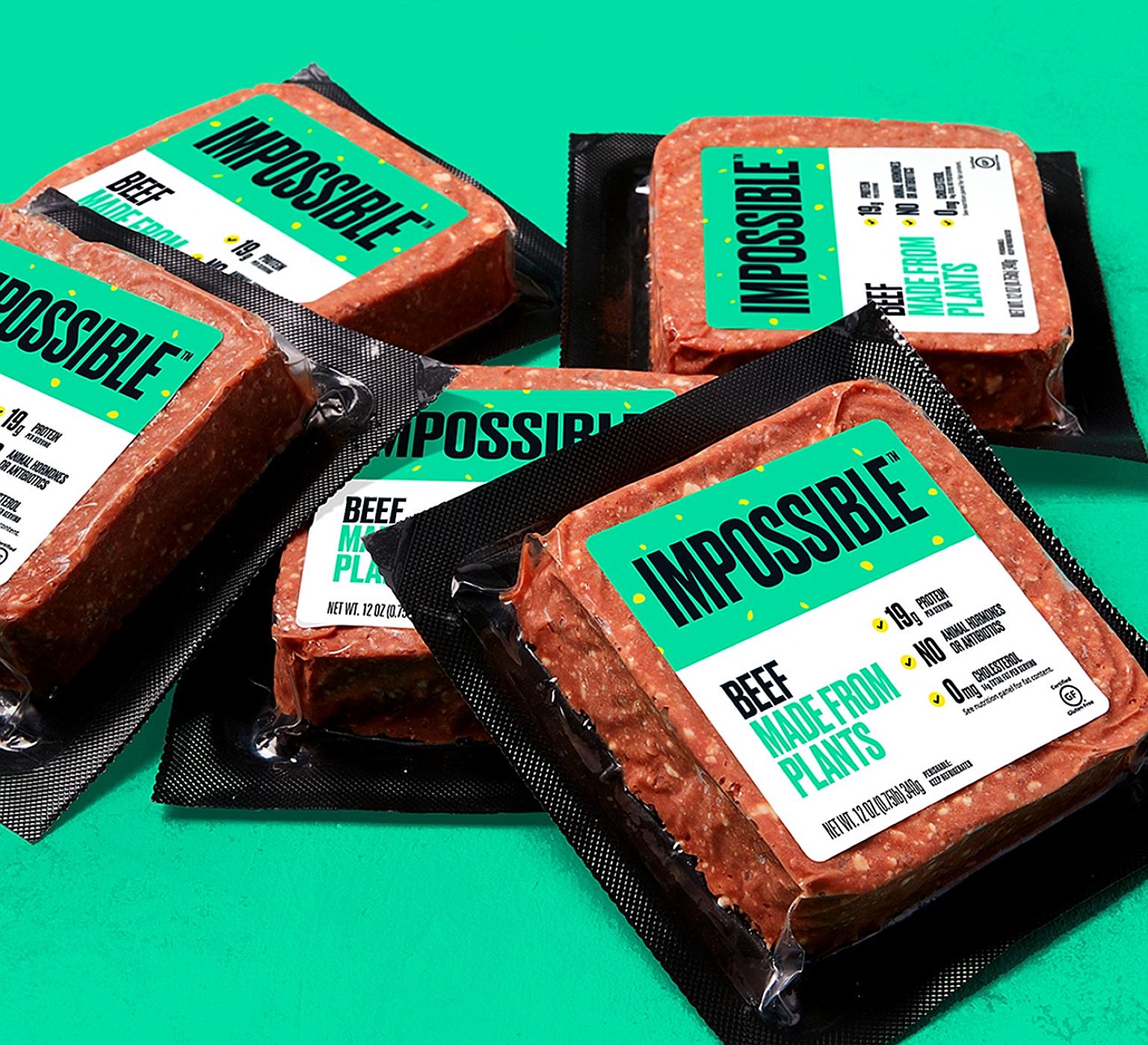Get Impossible Beef at FairPrice and on RedMart
You can soon buy the plant-based meat substitute at the supermarket's stores and from the online grocer
Sign up now: Weekly recommendations for the best eats in town

A 340g pack of Impossible Beef will sell for $16.90.
PHOTO: IMPOSSIBLE FOODS
Home cooks in Singapore will be able to buy Impossible Beef, a plant-based meat substitute made by Impossible Foods in the United States, in 79 FairPrice stores and from online grocer RedMart starting this week.
A 340g pack will sell for $16.90, or about $5 for 100g, more expensive than a lot of supermarket ground beef. RedMart, for example, sells Master Grocer Australia's premium frozen grassfed minced beef for $6.95 for a 500g pack, which works out to $1.39 for 100g.
Still, the American company, headquartered in Silicon Valley, is banking on curious home cooks snapping up the product. In the US, Impossible Beef is sold at more than 11,000 stores, including at retail giant Walmart stores, and at Kroger, the biggest grocery chain there.
Nine out of 10 customers are meat eaters, the company's chief financial officer, Mr David Lee, told The Straits Times in a Zoom interview from the US.
Asked about the price, he said the company was committed to reducing the price of its products, but would not say if Impossible planned to open a facility in Asia to manufacture the plant-based meat.
He said, however, that any "high-quality manufacturing facility" would be able to make the product.
Aside from Singapore, the plant-based meat, made from soya protein, is also being sold in PARKnSHOP supermarkets in Hong Kong.
The product was launched in both cities in March last year and, to date, about 550 restaurants in Singapore and about 700 restaurants in Hong Kong and Macau serve it.
Home cooks were able to buy 2.27kg bricks of the meat substitute for $88.90 each during the circuit breaker period, to help restaurants sell off their stock when dine-in was not allowed here.
The company launched its pork substitutes - Impossible Pork and Impossible Sausage - at the Consumer Electronics Show in Las Vegas early this year. Impossible Pork has not been launched commercially and the company has not announced plans to do so.
Impossible Sausage, a pre-seasoned variation which can be used to make patties and as a pizza topping, debuted in the US in the middle of the year and launched in Hong Kong last month. Mr Lee has no dates for its Singapore launch.
Dr Pat Brown, founder and chief executive officer of Impossible Foods, told The Straits Times: "Asia absolutely is our No. 1 priority for expansion, as our long-term goal is to make it available globally and everywhere meat from animals is sold. We've seen high adoption in Hong Kong, Macau and Singapore, which is encouraging for when we expand throughout Asia."
After causing a stir with its beef substitute, which tastes like the real thing, he is gunning for the pork market.
He said: "Our next focus is to 'disrupt the pig' and go after the entire ecosystem of pork production.
"After cows, pigs have the second-largest global environmental footprint. Pigs are the most widely eaten animal in the world, accounting for about 38 per cent of meat production worldwide.
"Even worse than cows, using pigs to make pork poses major threats to public health. Swine and avian flus are the most likely pandemic vectors because they pass easily to humans via faeces in slaughterhouses.
"A University of Minnesota study discovered faecal matter in 69 per cent of pork and a devastating case of African swine fever has already wiped out roughly one-quarter of the world's pigs and is expected to drive up worldwide prices of animal protein."
When The Straits Times interviewed Dr Brown at the launch of Impossible in Singapore in March last year, he had said his team of scientists was looking to create whole pieces of plant-based meat instead of ground-up meat substitutes. Work is ongoing.
He said: "Steak and other whole cuts are decidedly more difficult to make from plant-based ingredients exactly because they are 'whole' slabs of meat.
"When we engineer them, we need to put together plant components that have different functions. We want red and bloody heme in the middle of a steak. We want a strip of juicy fat line cutting across it.
"Putting together these different parts of a steak and making sure every component is where it needs to be is much more difficult with a large solid slab of meat than with ground meat, in which 90 per cent of assembly is mixing the components together."


